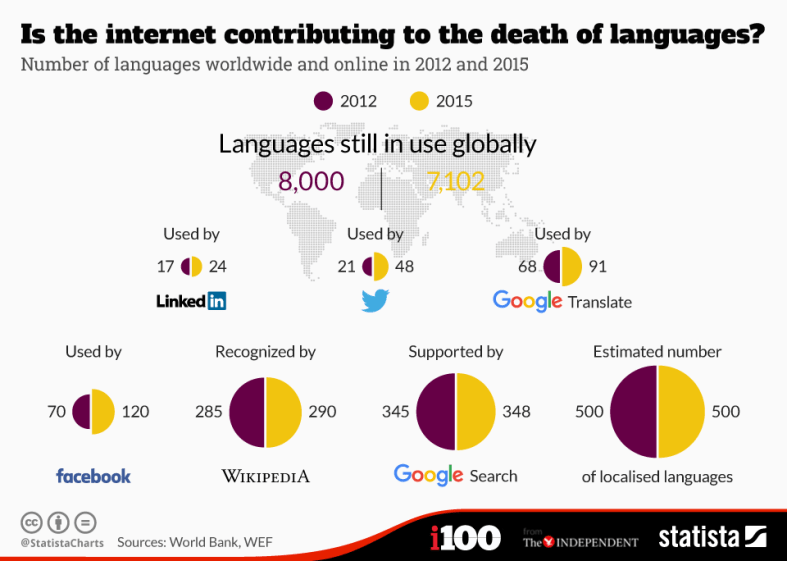 Languages are dying. A full 96% of the world’s 6,000+ languages appear to be dead when it comes to use on cell phones, laptops, and tablets, meaning that the Internet could be to languages what a certain comet was to the dinosaurs. At Oddee you can find fun facts about different languages. Language connects us all, and it is one of the most interesting areas you can study.
Languages are dying. A full 96% of the world’s 6,000+ languages appear to be dead when it comes to use on cell phones, laptops, and tablets, meaning that the Internet could be to languages what a certain comet was to the dinosaurs. At Oddee you can find fun facts about different languages. Language connects us all, and it is one of the most interesting areas you can study.
Is the internet to blame?
According to a recent study by prominent mathematical linguist András Kornai, less than 5 percent of the world’s languages are going to make the transition to the digital realm and the Internet is contributing to the demise of the other 95 percent.

Do all languages need to survive?
Understanding how to best represent linguistic diversity online remains a major challenge. Facebook estimates that making the internet useful for 80 percent of the world’s population only requires content to be available in 92 languages. Wikipedia is getting close, with 52 languages supporting 100,000 articles or more. But it would be wrong, not to say pointless, for the internet to support every single living spoken language.
The problem, as I see it, is that we will not be motivated to learn new languages. While the internet has enabled social networks to connect us with people around the world, english is still the dominant language; despite the increasing diversity of languages online.
What happens when real-time translators like Skype become the norm, will we want to learn languages?
Skype’s real-time speech translator isn’t yet fully operational, but I imagine it being a game-changer for communication with people from other countries. I also believe it will motivate us to learn another language because we’ll miss the connection with another person when real-time translation is not available in face to face meetings.
It’s also important to remember that learning to speak multiple languages makes one smarter, and the habits of one language are hard to break. For example, I speak fluid spanish and english, and have no problem switching from one to the other. The problem is I’ve become accustomed to thinking in english (I read and write in it the most), so it’s a challenge for me to express ideas in spanish.
Anyway, are we OK with a scenario where there is one dominant language spoken? What needs to happen in order for people to speak more languages?
Below is our discussion, listen and let us know what you think on Twitter @jorgebarba and @adrianpedrin.
Like our weekly podcast? Subscribe to my YouTube channel or blog newsletter.
The Big Bang is a weekly podcast. Tune in every Tuesday for more discussions on what’s possible.
Intro audio is by Arturo Arriaga, outro audio is Candyland by Guy J.






